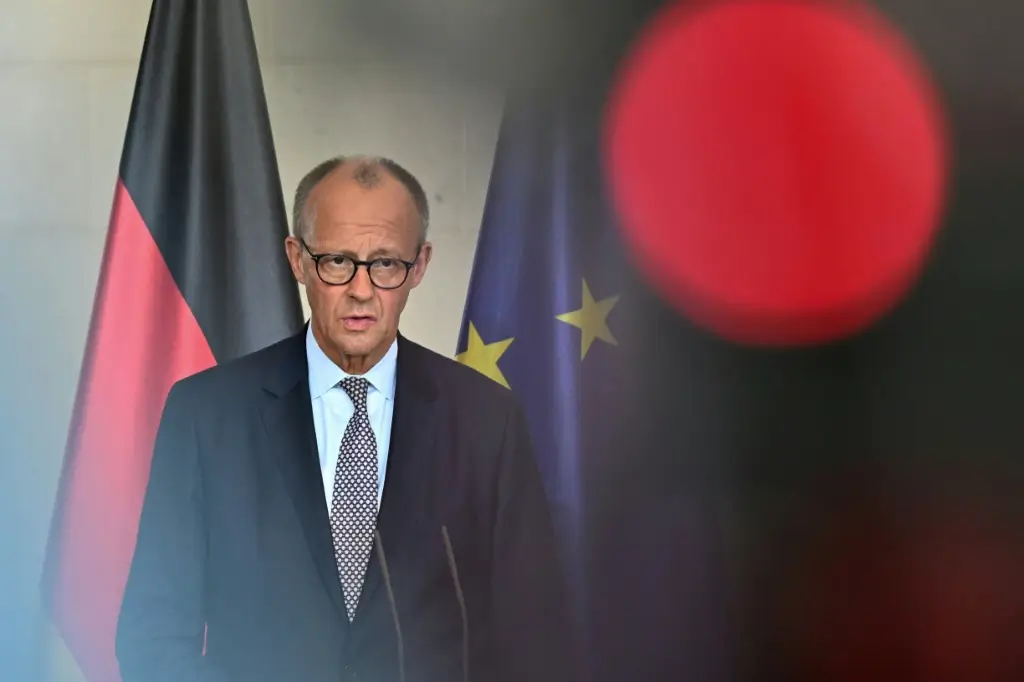
Chancellor Friedrich Merz (CDU) has announced a tough debate with coalition partner SPD on the planned reform of the social welfare system. He said on Saturday at a state party conference of the Lower Saxony CDU in Osnabrück that he deliberately did not want to make it easy for the SPD in this project. “I will not be irritated by words like social cuts and slashing and whatever else comes along,” Merz continued. “The welfare state as we know it today is no longer financially viable given our economic performance.”
The coalition of the CDU/CSU and SPD has undertaken fundamental reforms to the social security systems – for example, to citizen's benefit, pensions, and health insurance. The backdrop is rising costs and the need to cut federal budgets. The planned reforms are intended to keep the welfare state affordable. Concrete proposals are being developed, some in expert committees, and initial steps are expected to be taken in the fall.
He knows that the planned welfare state reform will not be “all that easy” in a coalition with the SPD, the CDU leader said. “It's like drilling through thick boards.” The project is “exhausting for the Social Democrats, and for us too, by the way – and I'm deliberately not making it easy for them,” Merz said. “But the appeal is directed at all of us: Let's show together that change is possible, that reform is possible.”
The government he leads has a duty to deliver, the chancellor said. “I am not satisfied with what we have achieved so far,” he said. “We need to do more, we need to do better.” Merz advised the coalition partner SPD to take a clearer position on migration and economic policy, and to move closer to the Union in these areas. “If this party has the strength to become critical of migration and industry-friendly, then this party also has a chance to gain a foothold in the government,” said the CDU leader with regard to the SPD.
He hoped “that the SPD in Berlin will succeed in this, that we will continue together on this path of being critical of migration and industry-friendly, so that this country has a chance – and so that we can show, above all, that Germany is successfully governed from the center,” the chancellor continued. Merz reiterated his call for stricter rules on citizen's benefit in order to encourage more people to work. “This cannot remain as it is: 5.6 million people on citizen's benefit,” he said. That is too many. “What is actually going on in these systems?”
Merz expressed the suspicion that social welfare benefits are discouraging people from working. “I don't blame those who use them,” he said. “The blame lies with us: we make offers that some people say, ‘I'd be stupid not to accept.’” His government would change that so that “it makes sense to return to the regular labor market.”
SPD leader Klingbeil advocated for reforms – while also warning against injustice. "We need structural reforms to keep contributions stable in the long term," Klingbeil told the Funke newspapers on Saturday. "I expect more imagination from all those responsible than simply cutting benefits for employees." All reforms must adhere to the following principle: "We remain a country that helps people who are in need, who become ill and need help."
Juso leader Türmer declared social cuts a red line for the SPD and emphasized that the citizen's benefit reform could pose a matter of conscience for members of parliament. "If the idea behind an autumn of reforms is social and benefit cuts, I can only say unequivocally: The SPD cannot go along with that one inch," Türmer told the "Stuttgarter Zeitung" and the "Stuttgarter Nachrichten."
The reform of the citizen's benefit also applies: "Every member of parliament should carefully consider which changes they can agree to," said the Juso leader. "The freedom of conscience of members of parliament also applies to social issues." CDU General Secretary Carsten Linnemann, on the other hand, called for a "paradigm shift" regarding the citizen's benefit: The country has its back against the wall "because the welfare state has become unaffordable," he told the "Neue Osnabrücker Zeitung" on Saturday.
Left Party parliamentary group leader Heidi Reichinnek warned of an "autumn of social cruelty." Currently, we are witnessing "how labor rights and the welfare state are being attacked in a massive campaign by think tanks, employers' associations, and so-called experts," Reichinnek told the AFP news agency. The CDU/CSU is "the spearhead of the attacks." Reichinnek called for a reactivation of the wealth tax.
FDP leader Christian Dürr accused the coalition of putting off reforms. "Of course, one can continue to establish commissions and philosophize about justice, or one can finally start initiating bold reforms," Dürr told AFP. He suggested more private pension provision, for example, through a "funded system like the stock pension."